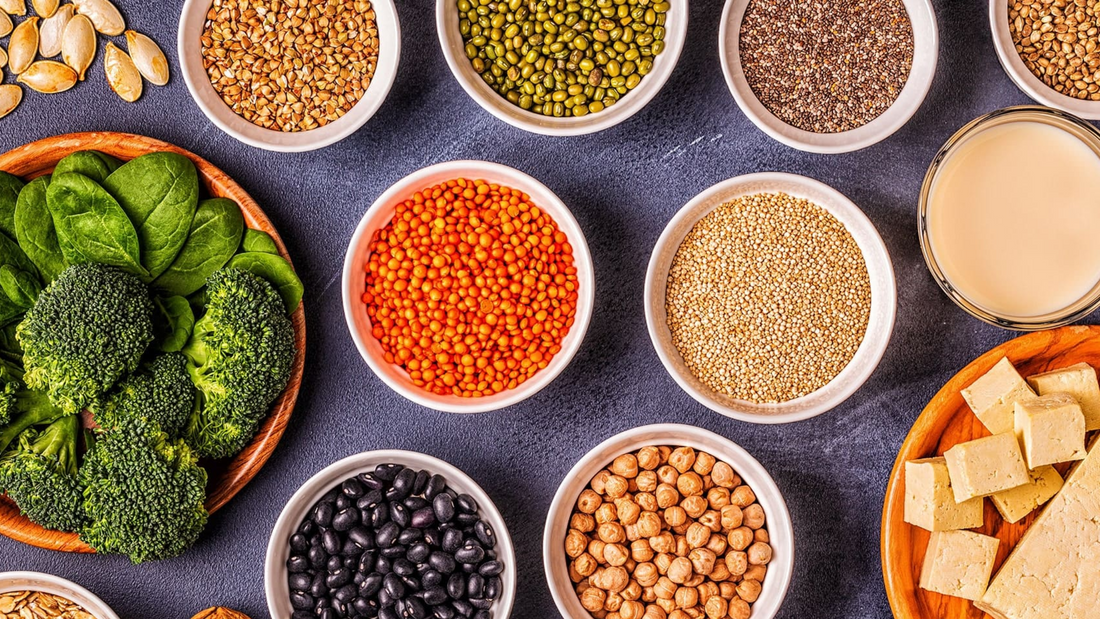- Legumes
Legumes are one of the best sources of plant-based protein available. Lentils, beans, chickpeas and peas are just a few examples of this highly nutritious food group. In addition to being rich in protein, vegetables also provide a good amount of fiber, essential vitamins and minerals. The combination of proteins and fiber makes these foods ideal for promoting satiety and helping the digestive system function properly.
- Soy
Soy is one of the most complete vegetable proteins, as it contains all the essential amino acids that our body needs. It can be consumed in different ways, such as tofu, soy milk, edamame and tempeh. In addition to being an excellent source of protein, soy is also rich in calcium, iron and other nutrients important for bone and cardiovascular health.
- Quinoa
Quinoa is a seed that stands out for being a complete source of proteins and carbohydrates with a low glycemic index. It contains all the essential amino acids and is rich in fiber, B vitamins, magnesium, iron and zinc. Quinoa is highly versatile and can be used as a base for salads, side dishes or even main dishes.
- Seeds and Dried Fruits
Seeds and nuts, such as almonds, chestnuts, sunflower seeds, pumpkin seeds and chia, are great sources of vegetable protein. In addition, they also provide healthy fats, minerals and vitamins, which make these foods very beneficial for heart and immune system health.
- Whole grains
Whole grains, such as buckwheat, brown rice, oats and barley, are also important sources of plant protein. Furthermore, they are rich in fiber, which contributes to the regulation of intestinal transit and helps maintain a feeling of satiety for longer.
A 100% plant-based diet can provide all the proteins our body needs, as long as varied sources of vegetable proteins are included. Legumes, soy, quinoa, seeds, nuts and whole grains are excellent options to ensure a balanced, nutritious and tasty diet. Furthermore, adopting a plant-based diet is also associated with numerous health and environmental benefits, making it a conscious and sustainable choice.

